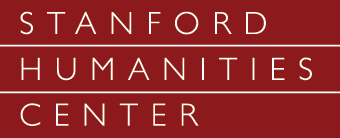A Workshop at the Stanford Humanities Center
Critical Data Practices in Humanities Research
Computational and Data Sciences approaches must balance urges to generalize data for purposes of standardization and prediction with the need to recognize individual and specific significance. Critical voices have revealed algorithmic biases and marginalization that have shaped and influenced new technology. Current works in law and policy studies ask whether fairness can be calculated and automated in civil society. Recently published work in art history looks to medieval Italy to reveal how measurement itself molds our understanding of truth and accuracy, while research on the extensive history of human communication demonstrates, from massive datasets, how particular events in society, and the effect of one group’s decision-making, can change the course of technological evolution. Against this backdrop, rapidly emerging techniques in Artificial and Augmented Intelligence--specifically, the advance of deep learning--is shifting focus from dataset size to data qualities and to the continuing significance of carefully and manually curated data. Designing effective models requires intimate engagement among data science experts and domain experts in the humanities and social sciences, the latter of whom understand the nuances and interpretative potential of underlying data and the kind of open questions that can be asked of it. The definition of data across disciplines remains arbitrary and ambiguous and assumptions about data are rooted in disciplinary and subjective practices. This working group will critically investigate data practices as a bridge to understanding data’s role in developing new insights and innovative solutions that encourage knowledge transfer not only among disciplines but between the academic and community engagement worlds. The group will investigate the ways data extracted from cultural artifacts, writings, and observations can be transformed into new knowledge that positively impacts scholarly understanding of the human in the machine.
Coordinators
Faculty: Giovanna Ceserani, Elaine Treharne
Graduate Student: Merve Tekgürler
Stanford Libraries’ Digital Research Architect, Nicole Coleman, is also coordinator of this workshop.
Workshop Schedule
View the full schedule and talk summaries
November 12, 2020
Elaine Treharne – Text Technologies
Mark Algee-Hewitt – The Literary Lab
Graduate Respondent: Leonardo Barleta
December 3, 2020
Giovanna Ceserani – Open Access & the Grand Tour Project: Historical Data Representation Beyond Data Schemas
Bridget Algee-Hewitt – Data Science to the Power of Ethics Equals Responsible Research
Graduate Respondent: Mae Velloso-Lyons
January 27, 2021
Peggy Phelan – Selected Negatives: Warhol's New York, 1984
Nicole Coleman – Collections as Data
Graduate Respondent: Anna Toledano
February 24, 2021
Laura Stokes – Bad Data and Epidemiology
Ali Yaycioglu – Mapping Ottoman Epirus: Region, Power, and Empire
Graduate Respondent: Nika Mavrody
March 17, 2021
Grant Parker – A Discussion of Ruha Benjamin's Race after Technology: Abolitionist Tools for the New Jim Code
April 7, 2021
Annika Butler-Wall – Managing ‘Service with a Smile’ from Behind the Screen: Gender and Language in Yelp Reviews
Charlotte Lindemann and Leah Chase – Speech Patterns in American Fiction
Nichole Nomura – Representing Learning Outcomes in Fiction: Finding Bloom's Taxonomy in ‘His Dark Materials’
April 28, 2021
Christina Hodge – A Decolonial Perspective on Archives and Digital Practices
Rowan Dorin – Corpus Synodalium: Local Ecclesiastical Legislation in Medieval Europe
Graduate Respondent: Laura Menéndez
May 19, 2021
Sumayya Ahmed – Talking Archives? Thinking about Oral History as a Form of Documentation

